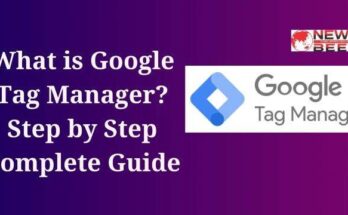E-A-T, which stands for Expertise, Authoritativeness, and Trustworthiness, is a critical concept in the world of SEO (Search Engine Optimization) and content creation. It represents the key factors that search engines like Google assess when evaluating the quality and credibility of a website or its content. Essentially, E-A-T serves as a guideline to ensure that web content is reliable and beneficial to users. Websites and authors with high E-A-T are more likely to rank well in search engine results and gain the trust of their audience.
What is E-A-T?
E-A-T stands for Expertise, Authoritativeness, and Trustworthiness. It’s a concept introduced by Google as part of its Search Quality Evaluator Guidelines to help assess the quality of web content and, ultimately, rank it in search engine results pages (SERPs). Understanding E-A-T is crucial for webmasters, content creators, and anyone looking to improve their website’s visibility in search results.
Here’s a Detailed Explanation of Each Component of E-A-T:
Expertise:
- Expertise refers to the level of knowledge, skill, and experience demonstrated by the content creator or the website as a whole. Google aims to prioritize content created by individuals or organizations that have expertise in the subject matter.
- Factors that contribute to expertise include educational qualifications, professional experience, certifications, and a track record of producing high-quality, accurate, and informative content.
- Content should showcase the author’s or the website’s expertise through in-depth analysis, well-researched information, and a thorough understanding of the topic.
Also, Read This: What is Digital Marketing in Hindi
Authoritativeness:
- Authoritativeness is about establishing the credibility and authority of the content, author, or the website in its respective field. It involves demonstrating that the information provided can be trusted as reliable and accurate.
- To establish authoritativeness, websites should have strong backlinks from other reputable websites, citations from authoritative sources, and a positive online reputation. The authority of the author or the organization is critical in determining the content’s value.
- Reviews, awards, recognition, and endorsements from experts or industry organizations can also contribute to a website’s authoritativeness.
Trustworthiness:
- Trustworthiness relates to the reliability and integrity of the content and the website itself. Users should feel confident that the information presented is accurate, unbiased, and free from deceptive or harmful practices.
- Factors affecting trustworthiness include transparency about the authorship and sources of information, clear and concise privacy policies, and adherence to ethical and legal standards.
- Trust can be undermined by factors such as misleading or clickbait headlines, excessive advertising, low-quality or outdated content, and unverified claims.
Here are Some Additional Points to Consider Regarding E-A-T:
- E-A-T is particularly important for websites that provide health, financial, or legal information, as inaccuracies in these fields can have significant real-world consequences.
- Google’s algorithms assess E-A-T through a combination of automated processes and human quality raters who evaluate the content based on these criteria.
- Improving E-A-T involves not only enhancing the content but also building a strong online presence and reputation. This includes seeking mentions, backlinks, and endorsements from authoritative sources.
- Regularly updating and maintaining your content to ensure accuracy and relevance is crucial for maintaining high E-A-T.
How Important is EAT?
EAT is a concept that has gained significant importance in the field of online content, especially in the context of search engine optimization (SEO) and content quality assessment. EAT is a set of criteria used by search engines like Google to evaluate the quality and credibility of web content. Let’s delve into the details of why EAT is important:
Search Engine Ranking:
- Google and other search engines aim to provide users with the most relevant and trustworthy information. They use complex algorithms to rank web pages based on various factors, including EAT.
- Websites and content that demonstrate high EAT are more likely to rank higher in search engine results pages (SERPs). This is crucial because higher rankings lead to more visibility, traffic, and potential customers.
Content Quality:
- EAT emphasizes the importance of high-quality content. Content that is well-researched, accurate, and written by experts in the field is more likely to meet EAT criteria.
- High-quality content not only improves your search engine rankings but also keeps visitors engaged and encourages them to spend more time on your site. This can lead to lower bounce rates and higher conversions.
Expertise:
- “E” in EAT stands for Expertise. It’s essential to showcase expertise in your content, especially in niches or industries that require specialized knowledge. When you demonstrate expertise, visitors are more likely to trust and value your content.
- Expertise can be established through author biographies, credentials, citations, and references to authoritative sources. It’s also about demonstrating a deep understanding of the subject matter.
Also, Read This: What is SEO? Type and Key Factors of SEO
Authoritativeness:
- The “A” in EAT represents Authoritativeness. Authoritative content is considered credible and reliable by both users and search engines.
- Building authoritativeness often involves acquiring backlinks from reputable websites, getting mentions from industry experts, and consistently producing high-quality, valuable content that others find worth referencing.
Trustworthiness:
- Trustworthiness is the “T” in EAT. It’s vital for users to trust the information they find online, especially for topics like health, finance, and legal matters.
- Factors that contribute to trustworthiness include clear and transparent information about the website or author, a privacy policy, contact information, and a secure website (HTTPS).
YMYL (Your Money or Your Life) Pages:
- Google gives special attention to YMYL pages, which are pages that can significantly impact a person’s health, safety, or financial well-being. Examples include medical advice, financial planning, and legal information.
- For YMYL topics, meeting EAT criteria is even more critical because providing inaccurate or untrustworthy information can have serious consequences.
User Experience:
- Websites that prioritize EAT tend to offer a better overall user experience. Users are more likely to engage with and trust websites that provide valuable, accurate, and authoritative content.
Long-Term Sustainability:
- Prioritizing EAT is not just about short-term SEO gains. It’s a strategy for long-term sustainability. As search engines continually refine their algorithms, websites that consistently meet EAT criteria are more likely to maintain and improve their rankings over time.
In summary, EAT is incredibly important for online content because it directly influences search engine rankings, content quality, user trust, and the overall success of websites. By focusing on expertise, authoritativeness, and trustworthiness, content creators and website owners can improve their online presence and provide valuable information to their audiences.




